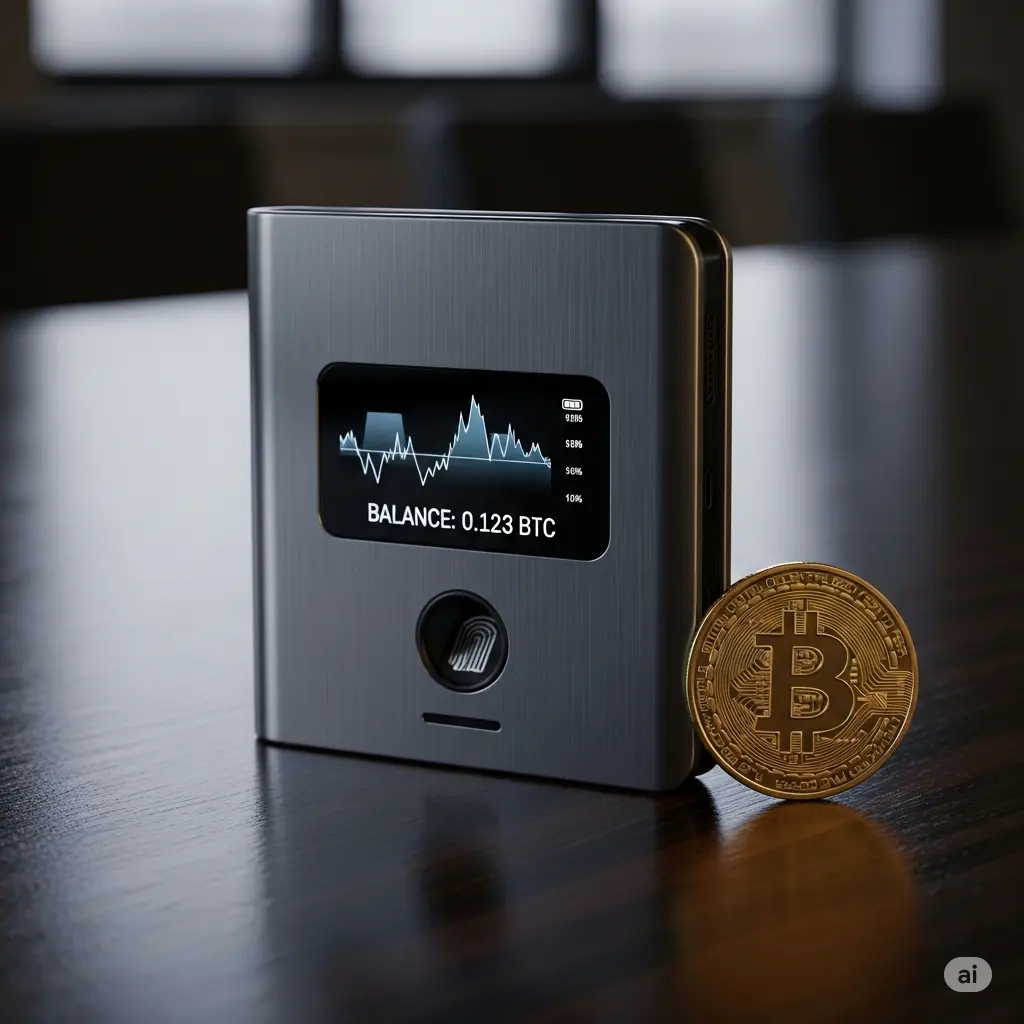Guaranteed Secure Crypto Wallet That Stops Hackers in Their Tracks
In the ever-evolving world of cryptocurrency, one thing remains constant: security is paramount. With billions of dollars circulating in the crypto market and increasing cases of hacking, phishing, and theft, having a secure crypto wallet is no longer optional — it’s essential. Whether you’re a seasoned trader or a crypto newbie, understanding how to protect your digital assets is the foundation of your success in the crypto space.
In this comprehensive guide, brought to you by Global Crypto Sports, we’ll dive deep into the world of secure crypto wallets—what they are, why they matter, and how they can stop hackers in their tracks. We’ll break down essential crypto terms, explore the best wallet types in 2025, and give you actionable tips to safeguard your investments. Let’s get started!
What Is a Secure Crypto Wallet?
A secure crypto wallet is a digital or physical tool that stores your private keys with advanced security features to protect your cryptocurrencies from theft, loss, or hacking attempts.
Why a Secure Crypto Wallet is Crucial in 2025
The crypto landscape has drastically changed since Bitcoin’s inception in 2009. With the rise of DeFi (Decentralized Finance), Web3 applications, and an expanding universe of tokens and NFTs, your digital assets are more accessible — and vulnerable — than ever.
The Rising Threat of Hacks and Scams
- In 2024 alone, crypto thefts and hacks totaled billions of dollars globally.
- Sophisticated phishing schemes and malware attacks target users daily.
- Many crypto investors still rely on insecure wallets or exchanges that can be compromised.
A guaranteed secure crypto wallet is the frontline defense against these risks. It ensures your private keys remain safe, unauthorized access is blocked, and your assets stay under your control — not the hackers’.

Understanding the Basics: Key Crypto Terms You Should Know
Before jumping into wallet types and security, let’s clarify some important crypto terms:
- Blockchain: A decentralized, tamper-proof ledger that records all transactions across a network.
- DeFi: Short for Decentralized Finance, it refers to financial applications built on blockchains without central intermediaries like banks.
- Web3: The next generation of the internet emphasizing decentralization, blockchain, and user ownership.
- Private Key: A secret code that allows you to access and manage your crypto funds.
- Public Key: Your wallet address that you can share to receive funds.
- Cold Wallet: A wallet that is offline, providing enhanced security by not being connected to the internet.
- Hot Wallet: A wallet connected to the internet, convenient for frequent trading but more vulnerable.
- Hardware Wallet: A physical device that securely stores private keys offline.
- Mobile Wallet: An app-based wallet installed on your smartphone, combining ease of use with moderate security.
- Decentralized Wallet: Wallets that give you full control without intermediaries; often non-custodial.
- Wallet Backup: A copy of your wallet’s seed phrase or private key to restore access if needed.
Key Characteristics of a Secure Crypto Wallet:
- Private Key Protection: Keeps your keys encrypted and inaccessible to unauthorized users.
- Two-Factor Authentication (2FA): Adds an extra layer of login security.
- Seed Phrase Backup: Provides a recovery method if you lose your wallet.
- Offline Storage: Cold wallets keep keys offline, preventing remote hacking.
- Open-Source Code: Allows community auditing to verify security claims.
- Multi-Signature Support: Requires multiple approvals before transactions can be made.
Types of Crypto Wallets: Which One is Right for You?
Choosing the best crypto wallet 2025 depends on your security needs, convenience, and how often you trade.
1. Cold Wallets
Cold wallets are offline wallets that store private keys in a completely isolated environment. They are the most secure option for long-term holders or those with large amounts of crypto.
- Examples: Hardware wallets like Ledger Nano X, Trezor Model T, and paper wallets.
- Pros: Nearly impossible to hack remotely, safe from malware, ideal for cold storage.
- Cons: Less convenient for frequent transactions, can be lost or damaged physically.
2. Hot Wallets
Hot wallets are connected to the internet, making them perfect for quick trading or daily use.
- Examples: MetaMask, Trust Wallet, Coinbase Wallet.
- Pros: Easy access, user-friendly, supports DeFi and Web3 apps.
- Cons: Vulnerable to phishing, hacking, and malware attacks.
3. Hardware Wallets
Hardware wallets combine the security of cold wallets with user-friendly interfaces.
- Function: Physical devices storing keys offline, requiring physical confirmation for transactions.
- Benefits: Strong protection against hacks, supports multiple cryptocurrencies.
- Popular Models: Ledger, Trezor, KeepKey.
4. Mobile Wallets
Mobile wallets are app-based wallets on smartphones, balancing security and convenience.
- Security: Usually secured by biometrics, PINs, and encryption.
- Use Cases: Best for active traders and users engaging in mobile DeFi.
- Risks: Phone theft or malware can compromise security.
How Secure Crypto Wallets Stop Hackers in Their Tracks
Understanding the Threats
Hackers use various tactics to steal crypto assets:
- Phishing: Fake websites or apps trick users into revealing keys.
- Malware: Software installed on devices to log keystrokes or capture keys.
- SIM Swapping: Taking control of your phone number to bypass 2FA.
- Exchange Hacks: Breaches in centralized platforms where crypto is stored.
Security Features That Block These Attacks
- Private Key Isolation: Hardware wallets keep keys offline, so even if your computer is compromised, hackers can’t access the keys.
- Two-Factor Authentication (2FA): Prevents unauthorized access even if passwords are stolen.
- Seed Phrase Encryption and Backup: Keeps your recovery phrases offline and secure.
- Multi-Signature Transactions: Requires multiple approvals, making unauthorized transfers impossible without consensus.
- Biometric Access: Fingerprint or facial recognition adds a security barrier.
- Anti-Phishing Measures: Some wallets include warnings or built-in verification to avoid fake sites.

Real-World Examples: Crypto Wallet Security in Action
Case Study 1: The Ledger Data Breach (2020)
Ledger, a popular hardware wallet brand, experienced a data breach exposing customer contact details. However, no private keys were compromised because the hardware wallets securely stored them offline, preventing hackers from accessing users’ funds.
Case Study 2: Mt. Gox Exchange Hack (2014)
The Mt. Gox centralized exchange hack led to the loss of 850,000 Bitcoins, highlighting the risk of storing crypto on exchanges rather than secure wallets.
Case Study 3: DeFi Phishing Attacks (2023)
Numerous users lost funds to fake DeFi platforms. Those using secure, decentralized wallets with 2FA and cautious verification avoided losses.
Benefits and Risks of Using Secure Crypto Wallets
Benefits
- Full Control Over Funds: Unlike exchanges, wallets give you ownership of your keys.
- Enhanced Security: Protects against hacking, phishing, and theft.
- Privacy: No personal information is required to use decentralized wallets.
- Access to DeFi & Web3: Enables participation in decentralized applications.
- Long-Term Safety: Ideal for storing assets for years without risk.
Risks
- Loss of Seed Phrase: If you lose your backup phrase, you lose access to your funds permanently.
- Physical Damage: Hardware wallets can be damaged or lost if not stored properly.
- User Error: Mistakes like sending funds to the wrong address or downloading fake apps can cause losses.
- No Customer Support: Unlike banks, wallets don’t have customer service to recover lost keys.
Actionable Tips for Beginners and Intermediate Crypto Investors
1. Always Use Hardware Wallets for Large Holdings
Keep most of your crypto in a hardware cold wallet. Use hot wallets only for active trading or small transactions.
2. Enable Two-Factor Authentication (2FA)
Use apps like Google Authenticator instead of SMS 2FA for better security.
3. Backup Your Wallet Seed Phrase
Write your seed phrase on paper and store it in multiple safe locations. Avoid digital backups that hackers can access.
4. Beware of Phishing Links and Fake Apps
Always verify URLs and download wallets only from official sources.
5. Use Multi-Signature Wallets if Possible
This adds an extra security layer, requiring multiple keys to approve transactions.
6. Regularly Update Your Wallet Software
Updates often include important security patches.
7. Stay Educated
Follow trusted news outlets like Global Crypto Sports for the latest security alerts and tips.
Frequently Asked Questions (FAQ)
Q1: What makes a crypto wallet truly secure?
A secure wallet protects your private keys offline or encrypts them robustly, uses 2FA, supports backup options, and is resistant to phishing and malware attacks.
Q2: Are hardware wallets really hacker-proof?
While nothing is 100% foolproof, hardware wallets are the most secure option available because they keep private keys offline and require physical confirmation for transactions.
Q3: Can I use multiple wallets for better security?
Yes! Many investors use a combination of cold wallets for storage and hot wallets for daily trading.
Q4: What happens if I lose my wallet backup?
If you lose your seed phrase or private key backup, you risk losing access to your funds permanently. Always keep backups safe.
Q5: Is a decentralized wallet safer than an exchange wallet?
Generally, yes. Decentralized wallets give you full control of your keys, unlike exchanges which hold your funds and are prime hacking targets.
Q6: How do I know which is the best crypto wallet 2025?
Look for wallets with strong security features, a reputable brand, active updates, and compatibility with your crypto holdings and use case.
Q7: Are mobile wallets safe for storing large amounts?
Mobile wallets are convenient but less secure than hardware wallets; they are best for small amounts and frequent transactions.
Conclusion: Stay Secure and In Control with the Right Crypto Wallet
The cryptocurrency revolution promises immense financial opportunity, but with it comes significant risk—especially from hackers. Choosing a secure crypto wallet is the first and most important step in protecting your digital assets.
Whether you’re just starting out or looking to upgrade your current setup, investing in a cold hardware wallet, maintaining backups, enabling 2FA, and staying informed through trusted sources like Global Crypto Sports will put you miles ahead of cybercriminals.
Ready to secure your crypto journey? Start by assessing your wallet options today and ensure your assets are locked tight against threats. Share this guide with your crypto community and help spread awareness about wallet security!
Stay safe. Stay informed. Stay invested.
